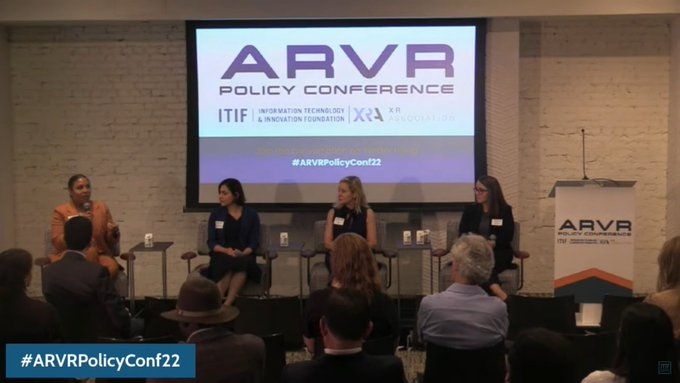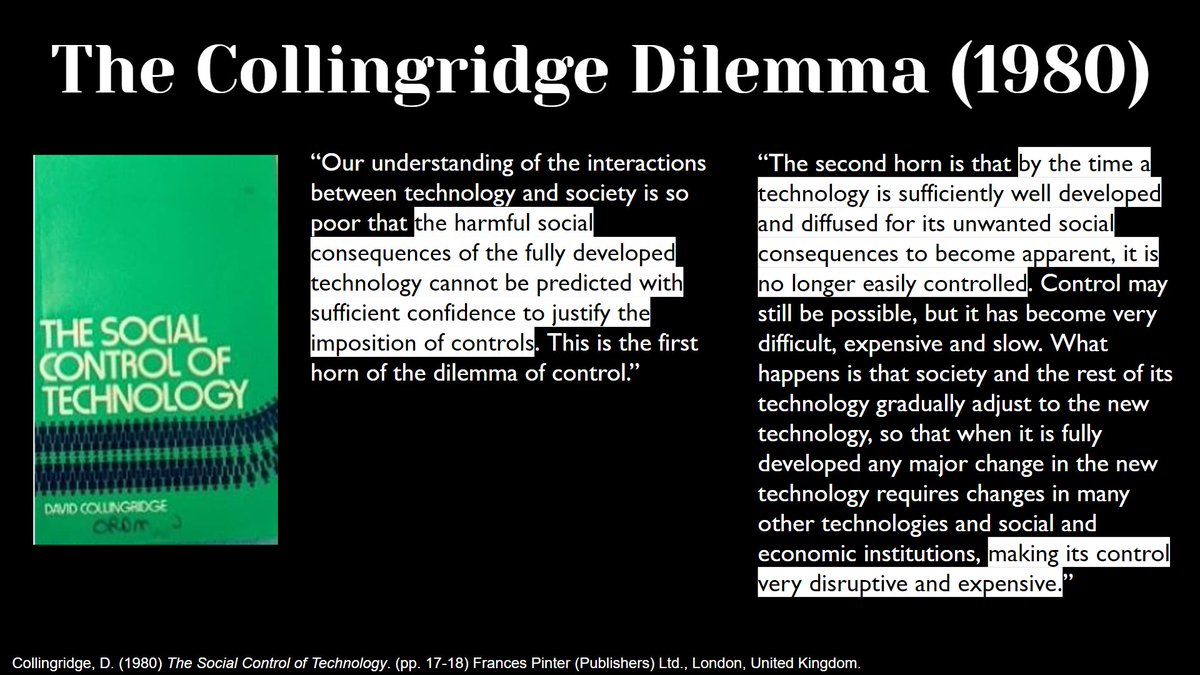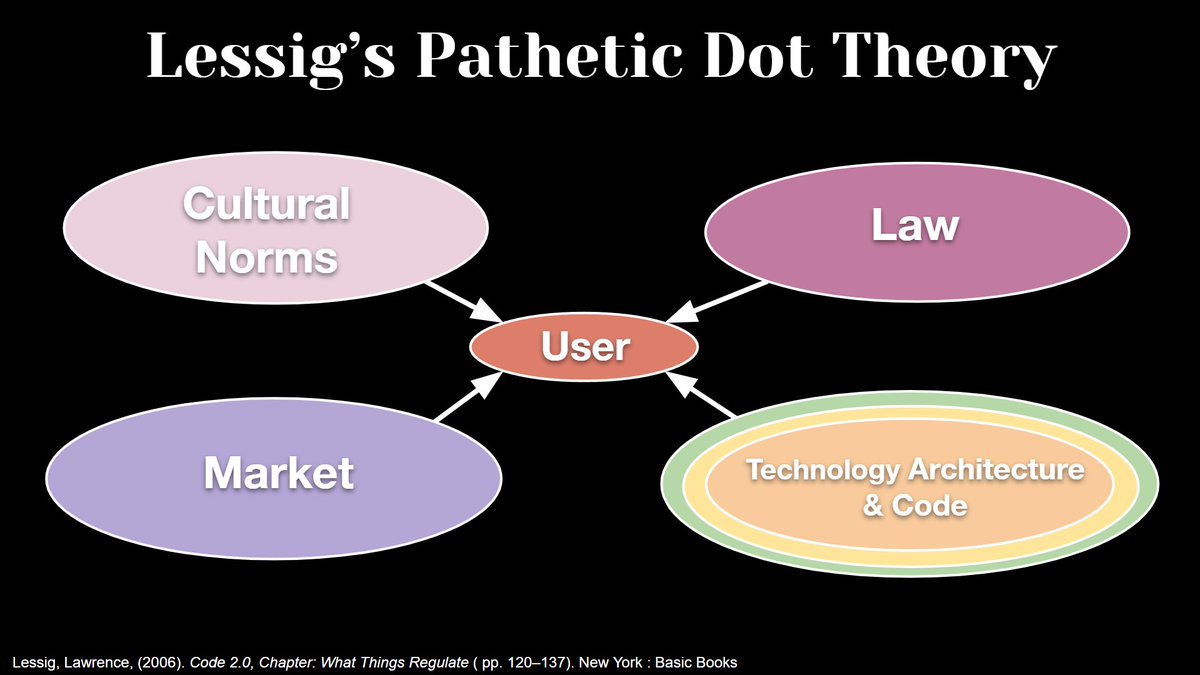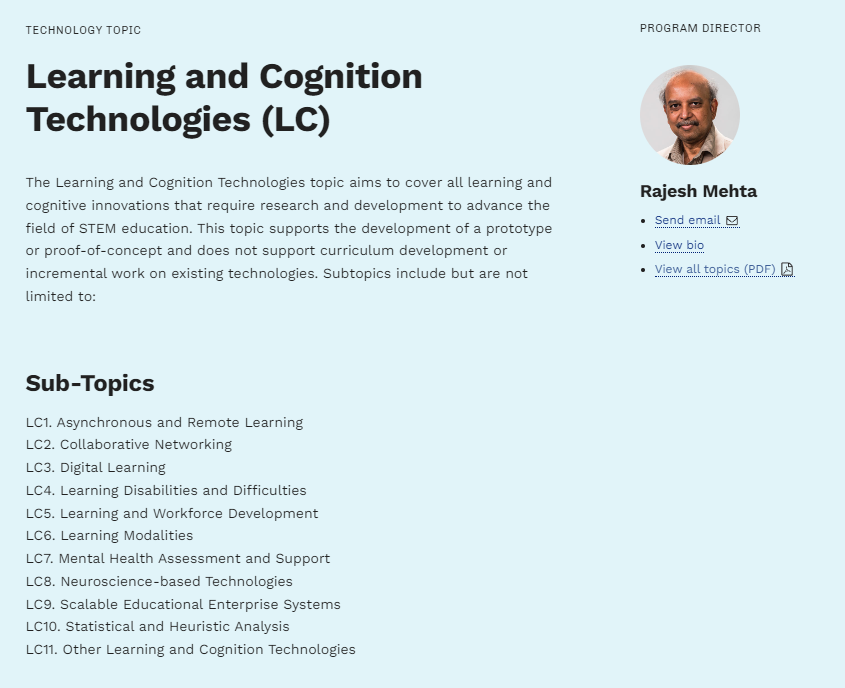
1/ Starting now is the #ARVRPolicyConf22 led by @XRAssociation & @ITIFdc.
I'll be tuning in & covering the talks in thread🧵👇
I expect the framing will be business-friendly as XRA is a trade organization representing Meta, Unity, MSFT, Sony, & Google.
I'll be tuning in & covering the talks in thread🧵👇
I expect the framing will be business-friendly as XRA is a trade organization representing Meta, Unity, MSFT, Sony, & Google.
https://twitter.com/ITIFdc/status/1570064853120978946

2/ @XRAssociation's Liz Hyman opens the #ARVRPolicyConf22 & mentions they just launch a 4-page #HowXRWorks infographic yesterday called “Into the Digital World: XRA’s Guide to Immersive Technology”
xra.org/howxrworks/



xra.org/howxrworks/




3/ Reality Caucus co-chair @repdarrellissa gives the opening keynote at #ARVRPolicyConf22.
delbene.house.gov/news/documents…
Says that they were able to include instructions for immersive technology for the National Science Foundation & insert AI language into the THUD bill.
delbene.house.gov/news/documents…
Says that they were able to include instructions for immersive technology for the National Science Foundation & insert AI language into the THUD bill.

4/ Surprised to hear @repdarrellissa's #ARVRPolicyConf22 keynote talk about augmenting 5 senses & potentially expanding senses into 6th senses & beyond.
Defines 7th sense as predictive algorithms and 8th sense as AI or AGI predictive learning intelligence.

Defines 7th sense as predictive algorithms and 8th sense as AI or AGI predictive learning intelligence.

5/ Next up is #ARVRPolicyConf22 panel on Online Safety, Free Speech, & Content Moderation featuring:
Christina Jackson (@Meta)
Farzaneh Badiei (Digital Trust and Safety Partnership @IGPAlert)
Shane Tews (@AEI)
Moderator Miranda Lutz (@XRAssociation)
Christina Jackson (@Meta)
Farzaneh Badiei (Digital Trust and Safety Partnership @IGPAlert)
Shane Tews (@AEI)
Moderator Miranda Lutz (@XRAssociation)

6/ When Moderator Lutz asked about a @Politico article about "Senate preps bipartisan push for dedicated tech agency," panelist @shanetews from @AEI said, "No. Don't. Wrong."
subscriber.politicopro.com/newsletter/202…
"Let companies figure it out" has been the theme & tone of #ARVRPolicyConf22.
subscriber.politicopro.com/newsletter/202…
"Let companies figure it out" has been the theme & tone of #ARVRPolicyConf22.

7/ Other themes from 1st #ARVRPolicyConf22 panel:
Challenges of moving from moderating asynchronous content to synchronous conduct.
Universal rules for Internet vs contextual to spaces or jurisdictions
Implications of immersive presence + privacy expectations of physical spaces
Challenges of moving from moderating asynchronous content to synchronous conduct.
Universal rules for Internet vs contextual to spaces or jurisdictions
Implications of immersive presence + privacy expectations of physical spaces

8/ ICYMI: One of the 8 papers from the @IEEESA's Global Initiative on the Ethics of Extended Reality was on "Trolling, Harassment, and Online Safety."
standards.ieee.org/wp-content/upl…
Interview here: voicesofvr.com/1089-ieee-glob…
More in thread here👇:
standards.ieee.org/wp-content/upl…
Interview here: voicesofvr.com/1089-ieee-glob…
More in thread here👇:
https://twitter.com/kentbye/status/1533861601681580033
9/ As I listen to the #ARVRPolicyConf22 discussions today, then I'm thinking a lot about the Colligridge Dilemma & Technology Pacing Gap.
Don't regulate too early to potentially stifle innovation, then skipping right to adopted technologies being "no longer easily controlled."



Don't regulate too early to potentially stifle innovation, then skipping right to adopted technologies being "no longer easily controlled."




10/ Another way to look at all of these #ARVRPolicyConf22 issues is through the lens of Lessig's framework that shows 4 ways to handle ethical issues: Cultural Norms, Law, Market, & Technology Architecture & Code.
Most of the folks speaking are advocating for everything but Laws.
Most of the folks speaking are advocating for everything but Laws.

11/ Most of the #ARVRPolicyConf22 discussion has been around how tech companies should iterate to solve any policy issues through engineering or their internal policies.
"Engineers have first go before the lawyers." as @shanetews said.
Here's how I see the Metaverse Tech Stack.
"Engineers have first go before the lawyers." as @shanetews said.
Here's how I see the Metaverse Tech Stack.

12/ Other topics from 1st #ARVRPolicyConf22 panel (no conclusions)
Personal bubbles & blocking
Broader Internet Governance issues from 2D apply to 3D
Who is accountable? Depends on the space
Cultivating inclusive environments
Policing for harms
Age verification?
Safety vs Privacy
Personal bubbles & blocking
Broader Internet Governance issues from 2D apply to 3D
Who is accountable? Depends on the space
Cultivating inclusive environments
Policing for harms
Age verification?
Safety vs Privacy

13/ @CRAguh Chief Innovation Officer @USDOL
Mentions @talespincompany training on fire assessment
Lab for Applied Social Science Research using VR for reskilling
Who is at the table when designing XR tech?
Mitigate perils of AI bias & privacy by inclusion

Mentions @talespincompany training on fire assessment
Lab for Applied Social Science Research using VR for reskilling
Who is at the table when designing XR tech?
Mitigate perils of AI bias & privacy by inclusion
https://twitter.com/CRAguh/status/1407132935430541312

14/ @DanRisko of @TransfrInc
Developed an apprenticeship app in VR to try out a job before you do the job.
Improved retention from 30% to 90%
Works with community colleges, technical center, K12s, non-profits.
Developed a Career Pathway Exploration app for Middle Schoolers
Developed an apprenticeship app in VR to try out a job before you do the job.
Improved retention from 30% to 90%
Works with community colleges, technical center, K12s, non-profits.
Developed a Career Pathway Exploration app for Middle Schoolers

15/ This is "Privacy in the Metaverse" panel probably the most important topic at #ARVRPolicyConf22.
We'll see how deep they dive into the topic.
Features
@m_ohlhausen (Former FTC Acting Chairwoman)
Dylan Gilbert (NIST)
Karim Mohammadali (Google)
Moderator @juanmlondonor (ITIF)
We'll see how deep they dive into the topic.
Features
@m_ohlhausen (Former FTC Acting Chairwoman)
Dylan Gilbert (NIST)
Karim Mohammadali (Google)
Moderator @juanmlondonor (ITIF)

16/ #ARVRPolicyConf22 privacy panel description lists biometric psychography & neuro-rights.
We'll see if they dig into it.
Former FTC chair starts by stating importance of identifying the substantial harms, injuries, or risks + likelihood of occurrence.

We'll see if they dig into it.
Former FTC chair starts by stating importance of identifying the substantial harms, injuries, or risks + likelihood of occurrence.
https://twitter.com/ITIFdc/status/1568585207401353216

17/ Really impressed by NIST's Dylan Gilbert's takes on privacy, "We can't count everyone to be a good actor in the ecosystem, and so laws & regulations are going to play a really important role."
But they're not a panacea for everything, especially downfalls of consent regimes.
But they're not a panacea for everything, especially downfalls of consent regimes.
18/ Lots of great NIST frameworks mentioned by Gilbert
NIST Privacy Framework
nist.gov/privacy-framew…
NIST Privacy Risk Assessment Methodology
github.com/usnistgov/Priv…
NIST Privacy Engineering Objectives of Predictability, Managability, Disassociability
nvlpubs.nist.gov/nistpubs/ir/20…
NIST Privacy Framework
nist.gov/privacy-framew…
NIST Privacy Risk Assessment Methodology
github.com/usnistgov/Priv…
NIST Privacy Engineering Objectives of Predictability, Managability, Disassociability
nvlpubs.nist.gov/nistpubs/ir/20…

19/ Privacy harms listed by NIST's Gilbert:
Threats to bodily autonomy, safety, implications for dignity & discrimination.
Problematic data actions of processing of physical & behavioral data, granular inferences to be used for reidentification.
Surveillance & induced disclosure
Threats to bodily autonomy, safety, implications for dignity & discrimination.
Problematic data actions of processing of physical & behavioral data, granular inferences to be used for reidentification.
Surveillance & induced disclosure

20/ Previous NIST graphic on Problematic Data Actions was not shown during the #ARVRPolicyConf22, but I found it online from a 2014 draft document (the latest list has probably expanded to consider implications of XR, biometric, & neural data)
Source:
csrc.nist.gov/CSRC/media/Eve…]
Source:
csrc.nist.gov/CSRC/media/Eve…]

21/ @GoogleARVR's Karim Mohammadali starts by mentioning the live translation of language via AR glasses prototype shown as a design prototype at GoogleIO in May + the potential privacy implications.
[Audio was cutting in & out]
#ARVRPolicyConf22
[Audio was cutting in & out]
#ARVRPolicyConf22
https://twitter.com/kentbye/status/1524476432088399873
22/ High-level discussion of AR Bystander Privacy issues.
Ohlhausen says it may needs regulation for people to trust wearable AR tech, but also norms evolve (e.g. phone cameras)
What are appropriate uses of data?
How to reduce privacy risks for others?
Consent in shared spaces?
Ohlhausen says it may needs regulation for people to trust wearable AR tech, but also norms evolve (e.g. phone cameras)
What are appropriate uses of data?
How to reduce privacy risks for others?
Consent in shared spaces?
23/ ICYMI: I did a deep dive on bystander privacy with researcher Mark McGill, who has mapped out mapping of the spectrum of data collection. Be sure to check out his IEEE XR Ethics paper on the topic for a more in-depth take on it
voicesofvr.com/1091-ieee-xr-e…

voicesofvr.com/1091-ieee-xr-e…
https://twitter.com/kentbye/status/1534276943574491137

24/ NIST's Gilbert mentions that there is an updated "Catalog of Security & Privacy Controls" in SP 800-53 revision 5.
Link: csrc.nist.gov/publications/d…
PDF: nvlpubs.nist.gov/nistpubs/Speci…
Link: csrc.nist.gov/publications/d…
PDF: nvlpubs.nist.gov/nistpubs/Speci…

25/ NIST's Gilbert also says interdisciplinary teams required to address AR Bystander issues for:
Inventory Data Mapping
Rigorous Risk Assessment
How much context-specific detail captured?
Trained on inclusive data sets?
Appropriate controls to help get to your risk responses
Inventory Data Mapping
Rigorous Risk Assessment
How much context-specific detail captured?
Trained on inclusive data sets?
Appropriate controls to help get to your risk responses
26/ I just listened to the rest of the #ARVRPolicyConf22 panel on privacy & I'm disappointed that they didn't substantially elaborate or get into any of the real privacy risks or harms of inferred data via biometric psychography or anything on neurorights.

https://twitter.com/kentbye/status/1568053077495926787

27/ There was one question on eye tracking, & privacy harms vs utility was spoken on abstractly, but nothing about the deeper threats on other types of non-invasive neural tech or deeper neurorights concepts around identity, agency, or mental privacy.

https://twitter.com/kentbye/status/1568057863372943360

28/ NIST's frameworks & existing biometric privacy laws are centered on identity/PII while there's a paradigm shift to what @brittanheller calls "Biometric Psychography," which was mentioned in the #ARVRPolicyConf22 privacy description, but not discussed.
voicesofvr.com/988-defining-b…
voicesofvr.com/988-defining-b…

29/ Aside from NIST's frameworks, other panelists on #ARVRPolicyConf22 privacy panel focused on self-regulation measures & consumer education while mostly ignoring the deeper existential threats of XR data + one vague statement biometric laws may need to be expanded (no details).
30/ When asked about the privacy implications for how XR data would be used for advertising, Google's Mohammadali said they're "actively looking at and researching implications."
Not very helpful.
Earlier he emphasized how Soli Radar is privacy-preserving
Not very helpful.
Earlier he emphasized how Soli Radar is privacy-preserving
31/ NIST's Gilbert mentioned Privacy-Enhancing Technologies (PETs) & adding differential privacy noise to data or federated learning for training
en.wikipedia.org/wiki/Privacy-e…
But again, XR companies like Meta just are not implementing measures like homomorphic encryption for XR data.
en.wikipedia.org/wiki/Privacy-e…
But again, XR companies like Meta just are not implementing measures like homomorphic encryption for XR data.
32/ Most Privacy discussions have been focused on controlling how personally identifiable information may reveal your identity.
But here's a taxonomy of how XR will translate biometric data into your thoughts, actions, emotions, & physiological reactions.

But here's a taxonomy of how XR will translate biometric data into your thoughts, actions, emotions, & physiological reactions.

33/ It's disappointing (but not too surprising) the #ARVRPolicyConf22 didn't dig into some of the most sticky privacy issues around inferences from XR data, biometric psychography, & neurorights.
They ended by discussing data security practices, but many key issues not discussed.
They ended by discussing data security practices, but many key issues not discussed.
34/ I made similar comments on XR privacy from last year's ARVR Policy Conference, and that was the biggest open question that I was left with in doing the recap here:
voicesofvr.com/1014-recap-of-…
Here's my thread from last year:
voicesofvr.com/1014-recap-of-…
Here's my thread from last year:
https://twitter.com/kentbye/status/1451217146164379651
35/ One thing Ohlhausen mentioned is the importance for XR businesses to "control the narrative" by doing consumer education on XR tech.
A lot of @XRAssociation's role & most of the rest of the #ARVRPolicyConf22 agenda is all about education on XR.
See:
voicesofvr.com/952-xr-associa…
A lot of @XRAssociation's role & most of the rest of the #ARVRPolicyConf22 agenda is all about education on XR.
See:
voicesofvr.com/952-xr-associa…
36/ 3rd #ARVRPolicyConf22 panel starts to get into the use cases of XR on "How AR/VR will Reshape National Defense, Govt Services & Intl Relations"
Chris Hample (@BoozAllen)
Dirck Schou (@taqtile)
@mdocholliday (DoD)
Moderator Joan O'Hara (@XRAssociation)

Chris Hample (@BoozAllen)
Dirck Schou (@taqtile)
@mdocholliday (DoD)
Moderator Joan O'Hara (@XRAssociation)
https://twitter.com/ITIFdc/status/1568252973880582146

37/ Panel on DoD use cases covered different types of training:
Tasks on digital twins
Managing stress & emotion via cognitive training
Cultural sensitivity
AR annotations opens up new work for remote experts Battlefield visualization
Joint wargaming, disaster, & relief planning
Tasks on digital twins
Managing stress & emotion via cognitive training
Cultural sensitivity
AR annotations opens up new work for remote experts Battlefield visualization
Joint wargaming, disaster, & relief planning
38/ @mdocholliday is the Deputy Chief Technology Officer for Critical Technologies in the DoD uses VR to visualize concepts his portfolio on directed energy, hypersonics, 5G, autonomy, & cooperation.
He mentioned Battlespace Exploitation of Mixed Reality Lab using COTS XR tech.
He mentioned Battlespace Exploitation of Mixed Reality Lab using COTS XR tech.

39/ There was mention of how Ukraine is using VR tech to train potential pilots (see TIME article below).
DoD funded VR development in 60s after Link Trainer Flight Simulator successes & so a LONG history of military training for why the tech even exists.
DoD funded VR development in 60s after Link Trainer Flight Simulator successes & so a LONG history of military training for why the tech even exists.
https://twitter.com/kentbye/status/1561808105943420928
40/ Metaverse for DoD gets translated into issues around XR security, interoperability, & extensibility.
Also questions on how to scale into remote edge compute devices.
Brief mention of Microsoft's IVAS (HoloLens for soldiers) which had 1st order on Sep 1
bloomberg.com/news/articles/…
Also questions on how to scale into remote edge compute devices.
Brief mention of Microsoft's IVAS (HoloLens for soldiers) which had 1st order on Sep 1
bloomberg.com/news/articles/…

41/ Lots of examples of DoD VR training + telemedicine apps mentioned by @BoozAllen's @ChrisHample & @taqtile's @dirckschou during the #ARVRPolicyConf22 panel
Benefits: Faster training, overcome language barriers, eliminate errors, deepen comprehension, & enable collaboration.
Benefits: Faster training, overcome language barriers, eliminate errors, deepen comprehension, & enable collaboration.
42/ Next #ARVRPolicyConf22 panel is on Intellectual Property in the Creator Economy getting into digital goods & crypto/NFT issues featuring
Dan Jasnow (@arentfoxschiff)
Kayleigh Nauman (@the_ipo)
@miketoner (@Threedium)
Moderated by @castrotech (@ITIFdc)

Dan Jasnow (@arentfoxschiff)
Kayleigh Nauman (@the_ipo)
@miketoner (@Threedium)
Moderated by @castrotech (@ITIFdc)
https://twitter.com/ITIFdc/status/1567989889429536768

43/ TL;DR is existing IP laws are sufficient for what the Metaverse looks like today.
Need to be proactive in registering IP as lots of enforcement problems w web3 (no equivalent ICANN for cybersquatters violating trademark protections).
Jurisdiction issues w/ decentralization.
Need to be proactive in registering IP as lots of enforcement problems w web3 (no equivalent ICANN for cybersquatters violating trademark protections).
Jurisdiction issues w/ decentralization.
44/ Interesting point by Nauman on how the USPTO has 45 different contextual categories for Trademark & how digital goods / digital twins in the Metaverse starts to blend & blur the lines of other categories into the 009 computer goods/services categories:
uspto.gov/trademarks/sea…
uspto.gov/trademarks/sea…

45/ There's a couple of pending lawsuits that dig into the Intellectual Property rights of companies against NFTs such as Nike, Inc. v. StockX LLC.
"Vault NFTs will 'confuse consumers' and dilute the company's 'famous trademarks.'"
cnet.com/personal-finan…

"Vault NFTs will 'confuse consumers' and dilute the company's 'famous trademarks.'"
cnet.com/personal-finan…
https://twitter.com/stockx/status/1486398583725305865

46/ Another pending lawsuit mentioned by Dan Jasnow is Hermès Intl v. @MasonRothschild over @MetaBirkins, which is a NFT project that "simply rips off Hermès’ famous BIRKIN trademark by adding the generic prefix “meta” to the famous trademark BIRKIN"
schwimmerlegal.com/wp-content/upl…
schwimmerlegal.com/wp-content/upl…

47/ Some other #ARVRPolicyConf22 open questions on digital IP rights:
Publicity rights on avatar image & likeness usage?
Decentraland is registered in Panama, but what about Trademark enforcement jurisdiction in truly decentralized orgs?
How do you have accountability with DAOs?
Publicity rights on avatar image & likeness usage?
Decentraland is registered in Panama, but what about Trademark enforcement jurisdiction in truly decentralized orgs?
How do you have accountability with DAOs?
48/ @miketoner pointed to Aura Blockchain Consortium created by luxury brand competitors LVMH, Prada Group & Cartier
auraluxuryblockchain.com
Also the potential performance rights implications of Eminem, Snoop Dogg performing as their Bored Ape Yacht Club NFTs at MTV awards.
auraluxuryblockchain.com
Also the potential performance rights implications of Eminem, Snoop Dogg performing as their Bored Ape Yacht Club NFTs at MTV awards.
49/ @TobiiTechnology's Steven Swartz gave a talk on eye tracking.
Covered apps of tracking human attention & human intent, assisting surgeons, more realistic & immersive social interactions, & human conditions of cognitive load stress, (more context 👇).

Covered apps of tracking human attention & human intent, assisting surgeons, more realistic & immersive social interactions, & human conditions of cognitive load stress, (more context 👇).
https://twitter.com/kentbye/status/1568053077495926787

50/ @TobiiTechnology has an in-depth "Eye Tracking Data Transparency Policy" that sets a high bar for notice & consent where users must actively opt-in, & lays out contextual usage:
transparency.tobii.com
This likely will be a far more comprehensive approach than what Meta does.
transparency.tobii.com
This likely will be a far more comprehensive approach than what Meta does.

51/ Question about assistive uses of eye tracking technology has Swartz point to Tobii's sister company @tobiidynavox, which creates "eye tracking enabled and touch-based augmented and alternative communication (AAC) devices."
us.tobiidynavox.com
us.tobiidynavox.com
52/ Final #ARVRPolicyConf22 panel on "Jobs, Skills, & Productivity: What the Metaverse Means for the Global Economy" with:
Kristina Francis @KristinaOptimi1 (@JFFTweets)
Aaron Kleiner (@unity),
Eli Noam (@Columbia),
Liz Hyman @e_liz_dc (@XRAssociation)

Kristina Francis @KristinaOptimi1 (@JFFTweets)
Aaron Kleiner (@unity),
Eli Noam (@Columbia),
Liz Hyman @e_liz_dc (@XRAssociation)
https://twitter.com/ITIFdc/status/1569038135496941571

53/ Columbia's Eli Noam predicts critical VR theory developing with negative dystopic blowback narratives & proposes a $20M per year Jobs Skills XR Foundation that's not focused on college educated people, but rather the "potential losers" in the economy & blue collar workers.
54/ @JFFTweets' @KristinaOptimi1 wants to reframe the type of "winners" & "losers" language Noam referenced.
Shared story of 12-year old son playing MSFT Flight Simulator 2hr/day to getting pilots license on fast track.
Sims are opening up new career opportunities for people .
Shared story of 12-year old son playing MSFT Flight Simulator 2hr/day to getting pilots license on fast track.
Sims are opening up new career opportunities for people .

55/ Unity's Kleiner emphasizing real-time.
I'm reminded of @johnriccitiello's Metaverse def from AWE: "The next generation of the Internet that is (1) always real-time and (2) mostly 3D, (3) mostly interactive, (4) mostly social & (5) mostly persistent."
I'm reminded of @johnriccitiello's Metaverse def from AWE: "The next generation of the Internet that is (1) always real-time and (2) mostly 3D, (3) mostly interactive, (4) mostly social & (5) mostly persistent."
https://twitter.com/kentbye/status/1532040902784393216
56/ @e_liz_dc cites Analysis Group's Metaverse study
analysisgroup.com/Insights/publi…
"if the metaverse were to be adopted & grow in a similar way as mobile technology, then we would expect it to be associated with a 2.8% contribution to global GDP after 10 years."


analysisgroup.com/Insights/publi…
"if the metaverse were to be adopted & grow in a similar way as mobile technology, then we would expect it to be associated with a 2.8% contribution to global GDP after 10 years."
https://twitter.com/analysisgroup/status/1526191119897399296


57/ Noam on Analysis Group's study "I'm not sure it's going to persuade anyone who does a serious analysis. It might be true, but it's not persuasive."
But also cites Amara's Law of "overestimating effect of a technology in the short run & underestimating effect in the long run"
But also cites Amara's Law of "overestimating effect of a technology in the short run & underestimating effect in the long run"
58/ Francis says @JFFTweets has partnered with @Meta with 8 small, advanced manufacturing businesses to learn communication skills & being more efficient on their jobs.
Digital Twin impacts on training as VR can integrate all learning modalities of visual, auditory, kinesthetic.
Digital Twin impacts on training as VR can integrate all learning modalities of visual, auditory, kinesthetic.
59/ @e_liz_dc says the recent CHIPS & Science Act has some funding for NSF to support R&D into emerging technologies.
Mentions this could be a way to potentially fund different XR Accessibility efforts (cc @XRAccess).
whitehouse.gov/briefing-room/…
Mentions this could be a way to potentially fund different XR Accessibility efforts (cc @XRAccess).
whitehouse.gov/briefing-room/…
60/ NSF's Diane Hickey mentions XR-related Small Business Innovation Research technology topics
Augmented and Virtual Reality (AV)
seedfund.nsf.gov/topics/augment…
Learning and Cognition Technologies (LC)
seedfund.nsf.gov/topics/learnin…
Human-Computer Interaction (HC)
seedfund.nsf.gov/topics/human-c…


Augmented and Virtual Reality (AV)
seedfund.nsf.gov/topics/augment…
Learning and Cognition Technologies (LC)
seedfund.nsf.gov/topics/learnin…
Human-Computer Interaction (HC)
seedfund.nsf.gov/topics/human-c…



61/ Also see the NSF-funded companies & NSF Learning & Cognition Technology that Diane Hickey mentioned at last year's AR/VR Policy Summit. #ARVRPolicyConf22
https://twitter.com/kentbye/status/1451270142969540608
62/ Other unique VR training app:
@VirtualApprent- Training for Bias
Soft skills training like simulating hard conversations
Unity for Humanity - Storytelling lens to cover issues
See: voicesofvr.com/868-vr-for-goo…
@embodiedLabs Immersive Caregiving Training 👇
@VirtualApprent- Training for Bias
Soft skills training like simulating hard conversations
Unity for Humanity - Storytelling lens to cover issues
See: voicesofvr.com/868-vr-for-goo…
@embodiedLabs Immersive Caregiving Training 👇
https://twitter.com/embodiedLabs/status/1570155509264556034
63/ @bobfine talks about many medical use cases of XR focused on 4 areas of digital healthcare:
Enhancing patient experience
Reducing costs
Improving health outcomes
Improving clinician experience, including the training of doctors leading to better retention & better physicians.
Enhancing patient experience
Reducing costs
Improving health outcomes
Improving clinician experience, including the training of doctors leading to better retention & better physicians.

64/ I always like to refer back to this slide from Stanford's @WalterGreenleaf that maps out the different Medical XR sectors, & @bobfine mentioned many of these in his brief #ARVRPolicyConf22 lightening talk
slideshare.net/waltergreenlea…
slideshare.net/waltergreenlea…

65/ Other Medical XR use cases:
Addressing isolation issues
Empathy training
Senior depression, anxiety disorders, physical rehab, neurorehab
physical therapy
mental health therapy
Practice surgery in VR
marketplace.org/shows/marketpl…
Virtual Sand Tray therapy
voicesofvr.com/928-play-thera…
Addressing isolation issues
Empathy training
Senior depression, anxiety disorders, physical rehab, neurorehab
physical therapy
mental health therapy
Practice surgery in VR
marketplace.org/shows/marketpl…
Virtual Sand Tray therapy
voicesofvr.com/928-play-thera…
66/ Some Medical XR stats from @bobfine:
35-50% reduction in procedural pain, less intensity
24% of time found a better path to tumor
Improved retention in training compared to books
He also mentioned Case Western Anatomy app for HoloLens (see below 👇)
35-50% reduction in procedural pain, less intensity
24% of time found a better path to tumor
Improved retention in training compared to books
He also mentioned Case Western Anatomy app for HoloLens (see below 👇)
https://twitter.com/kentbye/status/1262830718612156416
67/ @Kpodnar's XR Safety principles:
Privacy by design
Evaluate & monitor for harm w risk assessments
Mitigate potential bias
Design Transparency
Diversity
Invest in future-ready workforce
Educate consumers
Incorporate marginalized community needs
Extend regulatory frameworks
Privacy by design
Evaluate & monitor for harm w risk assessments
Mitigate potential bias
Design Transparency
Diversity
Invest in future-ready workforce
Educate consumers
Incorporate marginalized community needs
Extend regulatory frameworks

68/ @castrotech's final #ARVRPolicyConf22 thoughts
#1 XR & Metaverse have huge implications for tech policy
#2 Educate policy makers on XR tech so they understand implications of Privacy, Safety, Jobs, Productivity, Content Moderation, IP
#3 Lots of Creativity & Innovation in XR
#1 XR & Metaverse have huge implications for tech policy
#2 Educate policy makers on XR tech so they understand implications of Privacy, Safety, Jobs, Productivity, Content Moderation, IP
#3 Lots of Creativity & Innovation in XR

69/ Here's the sponsors & link to the full video archive of the #ARVRPolicyConf22.
Overall, it's still weighted pretty heavily towards education of policy makers around XR apps rather than the real meaty issues, especially around XR privacy & neurorights.
Overall, it's still weighted pretty heavily towards education of policy makers around XR apps rather than the real meaty issues, especially around XR privacy & neurorights.

END/ I was a #ARVRPolicyConf22 media partner.
Overall, I was glad to learn more about various training apps & IP discussions.
But otherwise not a lot of new ground covered in terms of XR policy & lots of stuff uncovered.
See my 11-hour series for more:

Overall, I was glad to learn more about various training apps & IP discussions.
But otherwise not a lot of new ground covered in terms of XR policy & lots of stuff uncovered.
See my 11-hour series for more:
https://twitter.com/kentbye/status/1533861601681580033

• • •
Missing some Tweet in this thread? You can try to
force a refresh






























